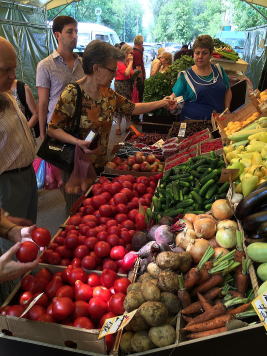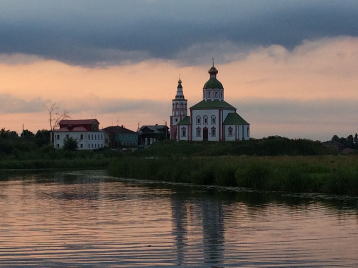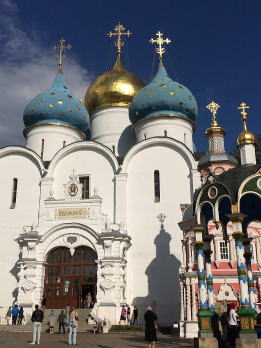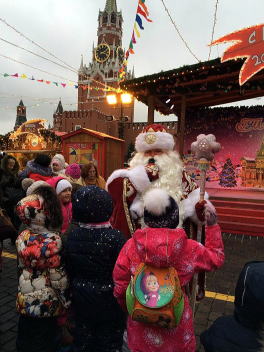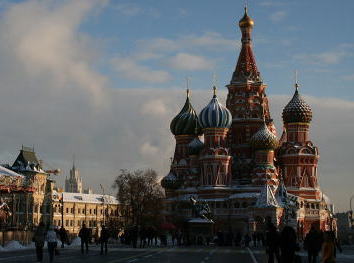There are half a dozen medium sized towns of historic importance located around Moscow. Called ''Golden ring'' they are popular weekend get away for Muscovites / attractions for visiting tourists.
Suzdal is one of them, that preserves and still lives in Russian folklore
landscape to this day.
Despite the harsh cold climate Russians are good at growing vegetables. Fresh produces are abundant during the warmer months and street markets blooms in vibrant colours.
In cooler months, selection gets narrow, but at the courtesy of the ex-USSR
neighbors in the south (esp. Azerbaijan and Uzbekistan) we have enough
supply of vegetable to survive the winter.
Another prominent town among the Golden Ring is Sergiev Posad. The town
has a small walled complex on a hill top, in which stand several splendid
specimen of religious architecture.
The town is one of the most sacred places of Russian orthodox, and receives
pilgrims from all over the nation. Definitly worth visiting, if you have
one free day to go out of Moscow.
- Back
The red square, known by many of us as a place of Soviet army's demonstration parade.
The still do it, on certain days to celebrate historic events, but is in
fact a peaceful place most of the time.
Thanks to the rich reserve of oil and other natural resources, Russian
economy made a solid, rapid growth. The days are gone when shops were empty,
with full of people queuing up. Now there are rather (too) many mega super
market (over)stocked with any conceivable goodies & luxuries from the
West!!
Check out this huge fish tank in a shopping mall - that houses numerous
tropical salt water fish - even golden trevallies!!
Cruise ships pass by Kremlin.
Summer in Moscow is cool and very pleasant. The only complaints is its being too short. Place the pointer to see the same location in winter - ice breaking vessel barely keeps the river navigable.
During the decades of cold war, Moscow was the stronghold and commanding
center of the communist world. And its legacies can be found even today.
Against the serious (and then very realistic) risk of nuclear attack, they
dug deep and made a metro network - so it serves as a nuke shelter.
Christmas is the highlight of the long winter. Though they follow Russian
orthodox calendar and celebrate it not on Dec 25th but on January 7th (when
Jesus was baptized).
Due to the high latitude and distance from the ocean, winter in Moscow
is bitterly cold albeit dry. Some hard core fishermen do go out ice fishing
on rare sunny days.
Moscow gained the status of a city in the middle of 12th century. When
the Rusi (origin of today's Russia) gained independence from the Mongolian
rule in 14th century, Moscow started to walk its way as the capital of
the Russian empire.
Through the turbulent storm of crises - including invasion by Napoleon and Hitler, the city survived, to become Moscow of today with 12million inhabitants.
 Moscow
Moscow